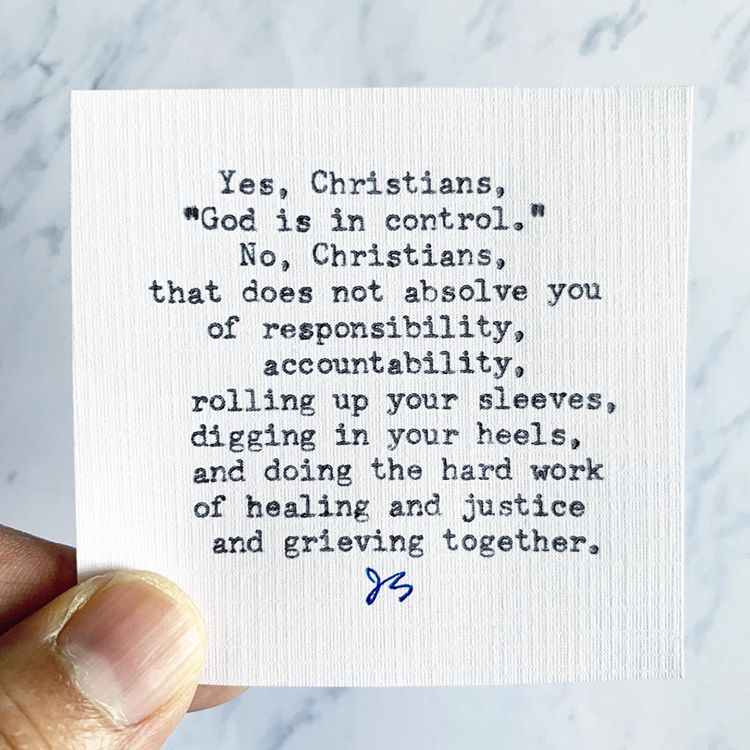colvmbiana asked a question:
I love God very much. But I recently saw a post on my dash that said, “How can a loving God send people to Hell?” and now I can’t stop thinking about that. How can He?
Hey dear friend, I truly struggle with this doctrine too, and if it were up to me, I’d be done with the whole idea of hell in a heartbeat. But I do want to consider the question, “How can a loving God send people to Hell?” — and examine the words loving, send, and hell.
First I have to say: I’m not sure that any Christian is irrevocably bound to believe the doctrine of hell. I know Christians who believe it and some who don’t. I love them both. We must not make the ancient mistake that 1) our theology is only about “consequences,” because it’s primarily about intimacy and oneness with God, and 2) to bicker over such dogmatic differences. Too many people wrongly emphasize the doctrine of hell as a motivation for Christianity, and that’s a false phantom motive that boils down to, “Date me or I’ll punch you in the face.” If there really is a place called hell and people are going, then 1) no one would become a Christian just by trying to “avoid” hell, and 2) the devil would love to have us arguing about it instead of loving on people towards God.
The following are some thoughts to consider. Please feel free to disagree, to fill in, to discern and to question and to dismantle. I recognize that many of us are appalled at the idea of hell and find it atrocious, and I’m with you: I hold the same feelings, while pondering the gravity and depth of its possibilities. There are no easy, satisfying answers here, but only ruminations, in which you and I must land on a conclusion, however differently.
1) Hell couldn’t be just for anyone. No one could be “sent” there. It would be hard work to get into hell.
C.S. Lewis says, “The doors of Hell are locked on the inside.” What he means is, getting to hell takes a massive amount of effort over a lifetime.
I think it’s a lot harder to get into hell than we think. A prison, at least in its original intentions, isn’t meant for someone accidentally wandering in without effort or knowledge. Hell is designed for the unrepentant, remorseless, unconscionable person who is deliberately dead-set on chaos and sadism. “Some men just want to watch the world burn.” That sort of person is rare, but they exist.
In tiny blips throughout history, someone will perpetually abuse their own singular life to the point of irreversible perversion, and very consciously choose everything against God’s design of love, compassion, and generosity. I believe that the idea of hell, in its purest conception, is a place exclusively reserved for that kind of cruelty. I might even replace the word “hell” with justice, or safety, or balance.
Of course, anyone can be rehabilitated. I will always believe that. I would never ever be satisfied at anyone going to hell, not even at the worst sort of criminal. Anyone who relishes the thought of someone going to hell must really re-think their own sanity. I believe that God gives a billion chances, over and over, all throughout Scripture. Many of our “Bible heroes” were murderers and tyrants and cheaters who reformed. Yes, there is grace even for child molesters and kidnappers. That’s the craziness of grace. If you care even the slightest about God’s divine heart for the world, then no, I highly doubt you’ll fall into hell.
Continue reading ““How Can a Loving God Send People to Hell?” — Five Difficult Truths About Heaven and Hell” →
















